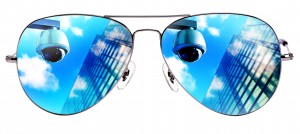Does facial recognition technology violate privacy?
Does facial recognition technology violate privacy? For some time, this issue has been a very hot issue. It’s often discussed. Proponents think that it can improve the efficiency of social regulation, while opponents think that it will be used immorally to infringe on people’s privacy. Yes, the people who speak out against this technology are very concerned about privacy, and there are many professional organizations in the voice of opposition. These professional institutions play a vital role in their own industries. Their industries take their opposition as the standard, and learn a lot from them, so that they can make important adjustments and improvements continuously.
However, the extent to which the facial recognition industry can address these concerns may never be enough for opponents, who revel in inaccuracy, bias and lack of standards because it provides the focus of opposition. The more accurate, standardized and impartial the technology is, the more it will be opposed, not less.
So why don’t some people trust facial recognition? In fact, it’s not technology that people distrust.
What people don’t trust are the social managers who misuse the technology, and the business organizations who use it unethically. All in all, it’s the users of the technology that don’t trust, not the technology itself. Of course, there are also technical defects, and many problems need to be solved, such as the accuracy of the algorithm, the deviation in the algorithm, the lack of standards and the worry about misuse. All these problems absolutely need to be solved.
Society is increasingly polarized. Conspiracy theorists abound. Many people don’t want the technology in the hands of unethical users at all, especially if its technical flaws are solved.
Many of these concerns are well founded. There is a strong record of abuse of tools and abuse of power, so it is necessary to impose and comply with publicly agreed best practices and hold our users accountable.
Although industry can and should make great progress in solving these problems and improving technology, industry itself cannot solve this problem. It’s a social problem that needs social debate, and people worry that this distrust is unlikely to ease soon in a society that embraces division and polarization. So, before passively waiting for legislation to restrict immoral use, what can we take the initiative to prevent our privacy from being violated?
In the meantime, face recognition has the potential to significantly improve public safety and efficiency. It’s a shame to give up this opportunity.
Almost any technology can be used for the bad as well as the good: in this respect, facial recognition is not alone.
If we really don’t trust our technology users, and we can’t take any other tools from them, we can bring our privacy glasses.
Post time: Jul-09-2021

